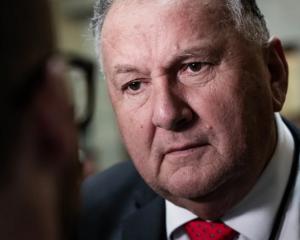A group of New Zealand scientists is gearing up to emulate the success of anti-tobacco campaigners by getting rid of sugar-flavoured soft drinks by 2025.
The move comes as scientists in Europe and the United States this week attacked sugar in fizzy drinks and goods in an escalating health debate about sugar's role in global health problems.
Modelled on the success of the tobacco-control campaign, the group of public health specialists and scientists want to ride the wave of support for "New Zealand Smokefree 2025" and the "end game for tobacco".
They are pushing for hefty, tobacco-style taxes on added-sugar milks, juices, soft drinks and energy/sports drinks because of the links between weight gain and intake of calorie-packed drinks.
The group have adopted a name, Fizz, or Fighting Sugar in Soft Drinks, with echoes of a leading tobacco-control lobby group, Ash (Action on Smoking and Health).
"I don't think the message and the vision is that far-fetched at all," said Fizz spokesman Dr Gerhard Sundborn, of Auckland University.
He is organising a symposium on sugary drinks which has attracted international speakers, including the Californian children's doctor Professor Robert Lustig, who famously refers to sugar as a toxin.
This week the Financial Times in the United Kingdom reported growing concerns from scientists and public health authorities in Britain and US about the link between added sugar and increasing global health problems. British and American critics say food and beverage companies have boosted sales by using more added sugar, which contributes to a number of health problems including diabetes, obesity and heart disease.
Dr Sundborn predicted the New Zealand public would "jump on board" the Fizz campaign once people learned how much sugar was in soft drinks and the harms of excess sugar consumption, such as unhealthy weight gain, tooth decay, and increased risk of type 2 diabetes, heart disease and gout.
A 355ml can of sugar fizzy drink contains 10 teaspoons of sugar or around 40g.
The World Health Organisation recommends a maximum of 10 per cent of our energy intake comes from added sugar. In New Zealand, this equates to 69g for an average man, 46g for an average woman, and 78g for a young man. It is widely understood that a WHO experts group is considering halving its recommendation.
New Zealand children get about a quarter of their "total sugars" from drinks, their main source, followed by fruit on 15 to 18 per cent.
We have one of the highest rates of obesity in the developed world - 28 per cent of adults and 10 per cent of children - although Pacific island nations' rates are generally much higher.
Fizz wants a 20 per cent tax on sugary drinks and regulations to restrict their availability at schools, public hospitals and other government agencies.
Major school tuck-shop contractors report sugary soft drinks have largely gone from schools since Frucor Beverages and Coca Cola agreed with the Government in 2006 to withdraw them voluntarily, although Coke noted this deal does not cover third-party wholesalers which are independent.
In Britain, researchers who calculated a 20 per cent tax would reduce obesity by 1.3 per cent also reported that soft drink taxes in France and Ireland had led to reduced consumption.
NZ Health Minister Tony Ryall said his Government did not support a sugar tax. The Green Party said it favoured a sugar drink levy and Labour said it would look at a "range of measures to reduce obesity".
Frucor said sugar drink taxes had not been shown to achieve public health objectives and they would increase costs for consumers.
Coca Cola said a tax would be unfair and the best way to reduce obesity was a combination of balanced diet and regular exercise.
- By Martin Johnston of the New Zealand Herald












